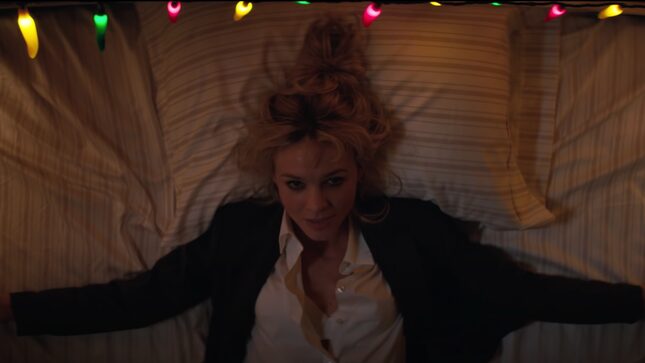

The only way to understand Promising Young Woman is to skip right to the ending. The film’s mashup of soft-feminine romance with trauma marked by vengeful spite makes for a delicious combination of tonal confusion. There is a lot happening in director Emerald Fennell’s audacious debut and the landscape she builds incorporates many of the messy messages (and backlash) of the MeToo movement, with a viciousness that is thrilling to witness. But while the film has all the right components of an instant classic, it strangely chooses to sit them all next to each other, rather than blending them into a well-flavored stew.
A colorful explosion of femininity and venom, Promising Young Woman tells the story of Cassie’s (Carey Mulligan) quest to avenge her best friend Nina, who died by suicide years earlier, after being raped at a med school party. Cassie’s guilt at not protecting her friend has consumed her life and led her to reckless behavior that she reframes as a righteous crusade. Each night, she goes out to bars, pretends to be too drunk to stand (and more importantly, to consent) then goes home with the first Nice Guy™ who approaches to make sure she’s all right. Then, when their veneer of care gives way to predation, she reveals the ruse, scaring them shitless, and forcing them to confront the depths of their own depravity.
Spoilers ahead
The first time the audience sees this happen—a shocked Adam Brody is taken aback by her sudden lucidity—it serves as the film’s symbolic fist pump. And that dose of pseudo-empowering “yaas queen” messaging serves as an inoculation against the film’s stranger choices later on, priming the audience to go along with Cassie as she makes ever more frustrating decisions. When she finds out that the man who raped Nina is now engaged to be married, she writes herself a “hit list,” targeting the people she thinks most responsible for her friend’s demise.
Part of the fun of the film is that Cassie’s only real power is that she is willing to breach the social contract. In our shitty little world, men menace, and women cower. Instead, Cassie menaces back—emboldened by what could reasonably be considered a form of passive suicidal ideation. When men catcall her in the street, she doesn’t run or flip them off or yell. She simply stares. She stands still and returns the gaze of lecherous men, forcing them to confront that they are well aware that their sexual harassment is a show of power. But Cassie punctures that power by engaging with it. The same is true for her interactions with former friend Madison (Alison Brie), Dean Elizabeth Walker (Connie Britton), and eventually her boyfriend Ryan (Bo Burnham). She doesn’t scream, or cry or plead. She merely addresses the uncomfortable silences between them, making the subtext text again.
-

-

-

-

-

-

-

-

-

-

-

-

-

-

-

-

-

-

-

-

-

-

-

-

-

-

-

-

-

-

-

-

-

-

-

-

-

-

-

-








































